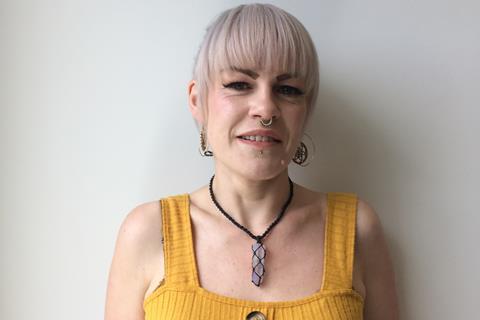Trainee solicitor

My dad is a law centre lawyer. I enjoyed his stories about the work he did and reading the many legal biographies we had at home. I studied English literature at university and then did support work for adults with mental health problems. I also volunteered with refugee and asylum-seeker support agencies.
I loved being able to make a difference in the world around me – but often felt powerless as there was only so much I could do. After I had my second child, I wanted to retrain and find a way to provide more solid help to disadvantaged and vulnerable people – and to hold those in power to account.
I decided to apply for the GDL. I did law-related work all the way through my part-time GDL and LPC, which was excellent preparation for becoming a solicitor. I enjoyed the GDL and getting a good overview of the legal system. However, I do not believe that the LPC was good preparation for real life. It is very difficult to specialise in social welfare law as these modules are often not available.
I started my studies when my second child was six months old. I studied the GDL part-time and worked as a welfare benefits adviser and tribunal representative at Vauxhall Law Centre, Liverpool, one or two days a week for the first year.
In my second year, I started work full-time as a case officer on the Hillsborough inquests team. This led to massive time pressures. I struggled to fund the course and was lucky to receive some financial support from my parents. This put additional pressure on me to make sure that the money spent was worth it. I wanted to get the highest grades I could, as I was worried that as a woman over 30 with children, a mobility impairment and a scouse accent I might struggle to obtain a training contract. I remember regularly being up until 3am so that I could get my work and revision done, having had to complete my day job and parenting duties before I could start studying.
I will never forget the time we spent with the families of the Hillsborough victims, the inspirational lawyers working on the case and the campaigners who never gave up
Part way through my LPC, my Hillsborough inquest contract ended. I applied to become an asylum case officer, and was accepted on condition that I passed my level 2 Immigration and Asylum Accreditation before I started. The accreditation exam clashed with one of my LPC exams, so I had to get my housing exam deferred. This meant I did not get to graduate with my fellow LPC students. I received my results too late to apply for that year’s round of Justice First Fellowship training contracts. That caused me a lot of stress at the time. I was able to get a Legal Education Foundation Justice First Fellow role the following year, and completed both my GDL and LPC, so the stress and hard work paid off.
Hillsborough was harrowing and took over my life for two and half years. But as someone from Merseyside, it was the best experience I could have imagined. I will never forget the time we spent with the families of the victims, the inspirational lawyers working on the case and the campaigners who never gave up. The day of the verdicts will always be one of the most memorable of my life.
I always knew this was the kind of work I wanted to do. I am now campaigning to the SRA on behalf of Young Legal Aid Lawyers to ensure that the new SQE includes at least some social welfare modules. The skills required for this kind of work are often very different from those taught on the LPC. I think experience on the job alongside training is more valuable for a social welfare lawyer.
It often feels as if legal aid work is looked down on by law schools, as something you do when you do not have the grades for commercial law. This is not the case at all. There are many talented, dedicated and passionate lawyers working in these areas.
Housing clients often have myriad problems, such as poverty, joblessness, mental and physical health problems, sick children, debt. They often lose contact and you are left to prepare for court in a vacuum. It can weigh heavily when you know they will end up homeless if you are not able to help. It can sometimes feel like a social work role, which is difficult when your caseload is high and the fees so low.































1 Reader's comment